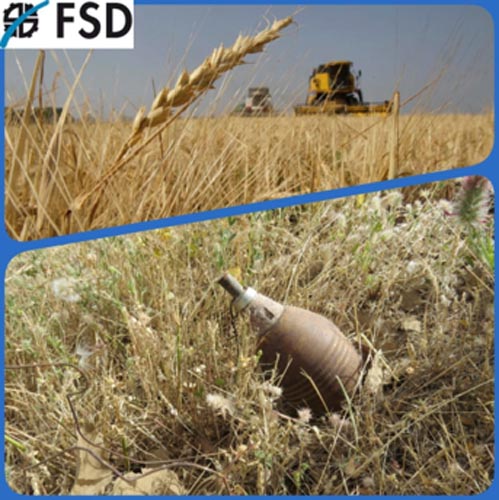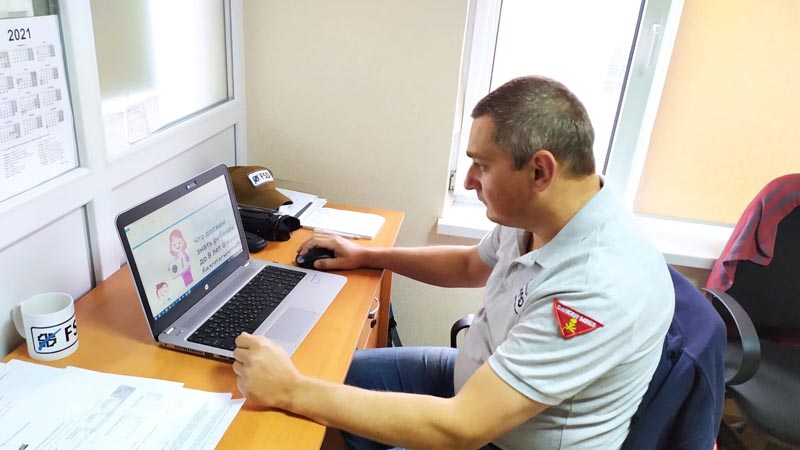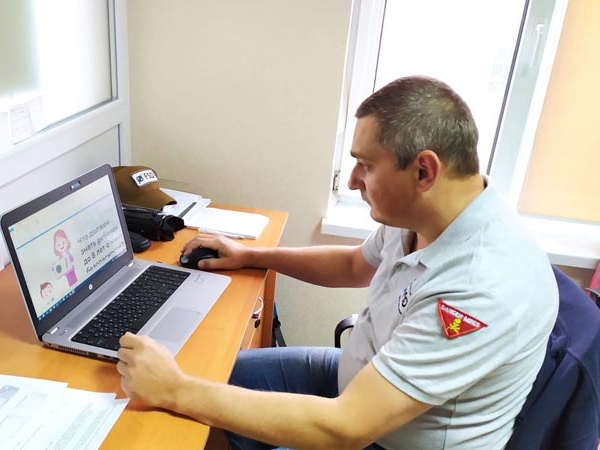In order to raise awareness on the risks of explosive devices among affected populations, mine action organizations traditionally make “live” presentations. Today, digital means, and in particular social networks, make it possible to reach more people and thus promote safe behavior more effectively. With the COVID-19 pandemic, the transition to digital explosive ordnance risk education has accelerated. FSD drew a pleasing assessment of its first prevention campaigns on social networks.
For years, FSD teams have been organizing awareness sessions using puppets in schools and kindergartens in Ukraine, speaking to village assemblies in remote villages in the Philippines, and travelling through the Afghan mountains to meet the shepherds. The COVID-19 crisis and the restrictions on travel and meetings it entails have put a damper on these activities. As a result, FSD quickly had to put in place new means to continue to prevent accidents due to landmines and explosive remnants of war. Campaigns were launched on social media in several countries.

-عزيزي المزارع
مع بدء موسم الحصاد في الحقول. يرجى الانتباه عند الاقتراب من الاراضي المتروكة و لم تتم زراعتها سابقا لاحتمال وجود العبوات الناسفة و المخلفات الحربية.
عند مشاهدتك لأي عبوة ناسفة او مخلف حربي او اي جسم غريب لا تحاول تحريكه و قم بتبليغ الجهات المختصة على الارقام المجانية.
١٨٢ دائرة شؤون الالغام
١١٥ الدفاع المدني
In Iraq, our teams have prepared many awareness raising videos that were published on the national FSD Facebook page. The potential for dissemination on Facebook is immense, with more than one out of two Iraqis being active on the platform by 2020. “Most of the videos are aimed at a specific audience, such as farmers, women or youth, says Peter Smethers, program manager for FSD Iraq. The videos that were shown during the lockdown were particularly viral”. In particular, a publication urging farmers to be cautious during the harvest period was seen nearly 30,000 times. This campaign was carried out with the support of the US State Department.

The Iraqi success inspired a similar pilot project in Ukraine, which was implemented between June and August on Facebook, via a page created especially for this purpose: BezMin.info (“Mine-free”). Informative publications alternated with more playful posts, including quizzes. “The goal was to engage in dialogue with our beneficiaries and to encourage interactions between them, and the feedback has been largely positive, says Olena Kryvova, project manager for FSD in Ukraine. In the future, however, the idea is not to replace face-to-face prevention by the virtual: the two strategies are complementary and must coexist”. A campaign was also launched in September on VKontakte, a Russian social networking site similar to Facebook. The objective was to reach populations located in the area of the country outside government control, along the Russian border.
In Mindanao, an EU-funded mine risk education campaign was also launched on Facebook in response to Covid-19 restrictions. “The campaign was very successful and we learnt a lot from it, said Craig Dreghorn, senior technical advisor for FSD in the Philippines. We have seen how different factors are taken into account by the algorithms, such as the amount of text or links to other sites, so we will tailor our future videos to achieve maximum coverage.”
These campaigns to raise awareness on the risks of explosive devices on social networks are one facet of the FSD’s digital transition. Indeed, humanitarian action is increasingly turning to digital tools to maximize its impact. For example, our deminers teams in Afghanistan have recently started collecting the data about explosive reports they encounter on tablet computers rather than on paper.



